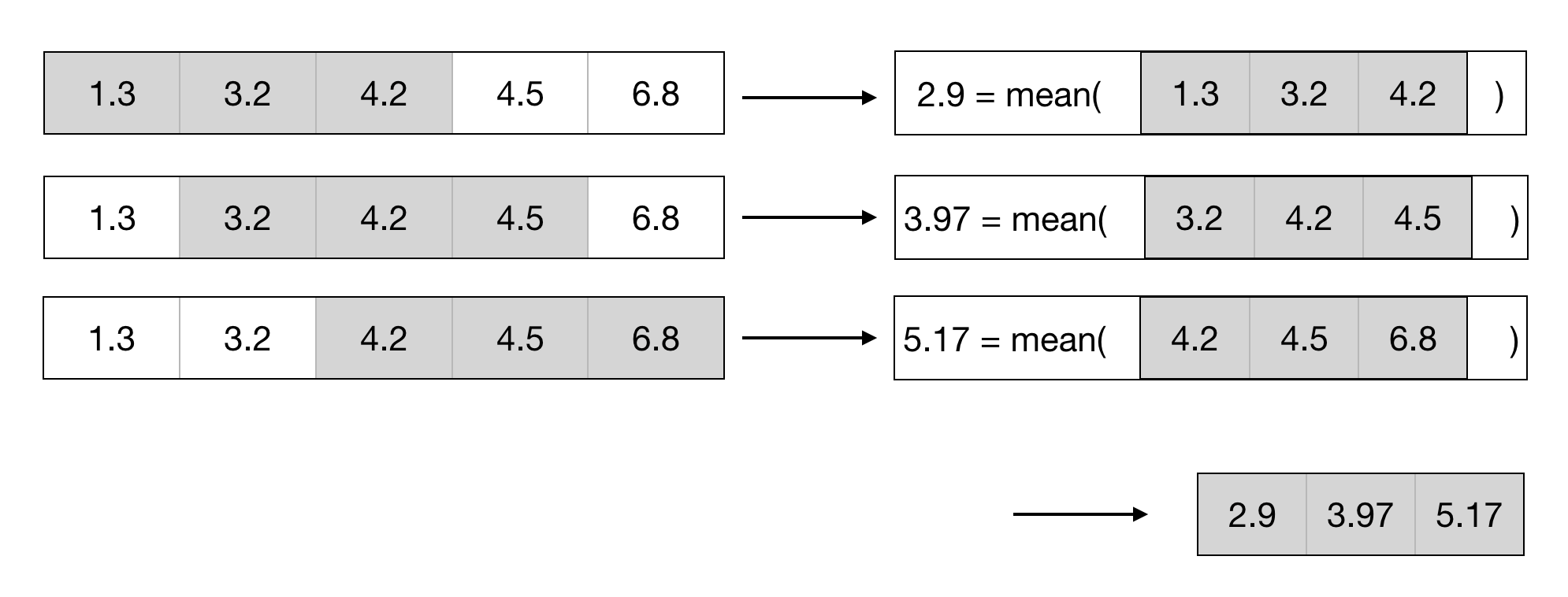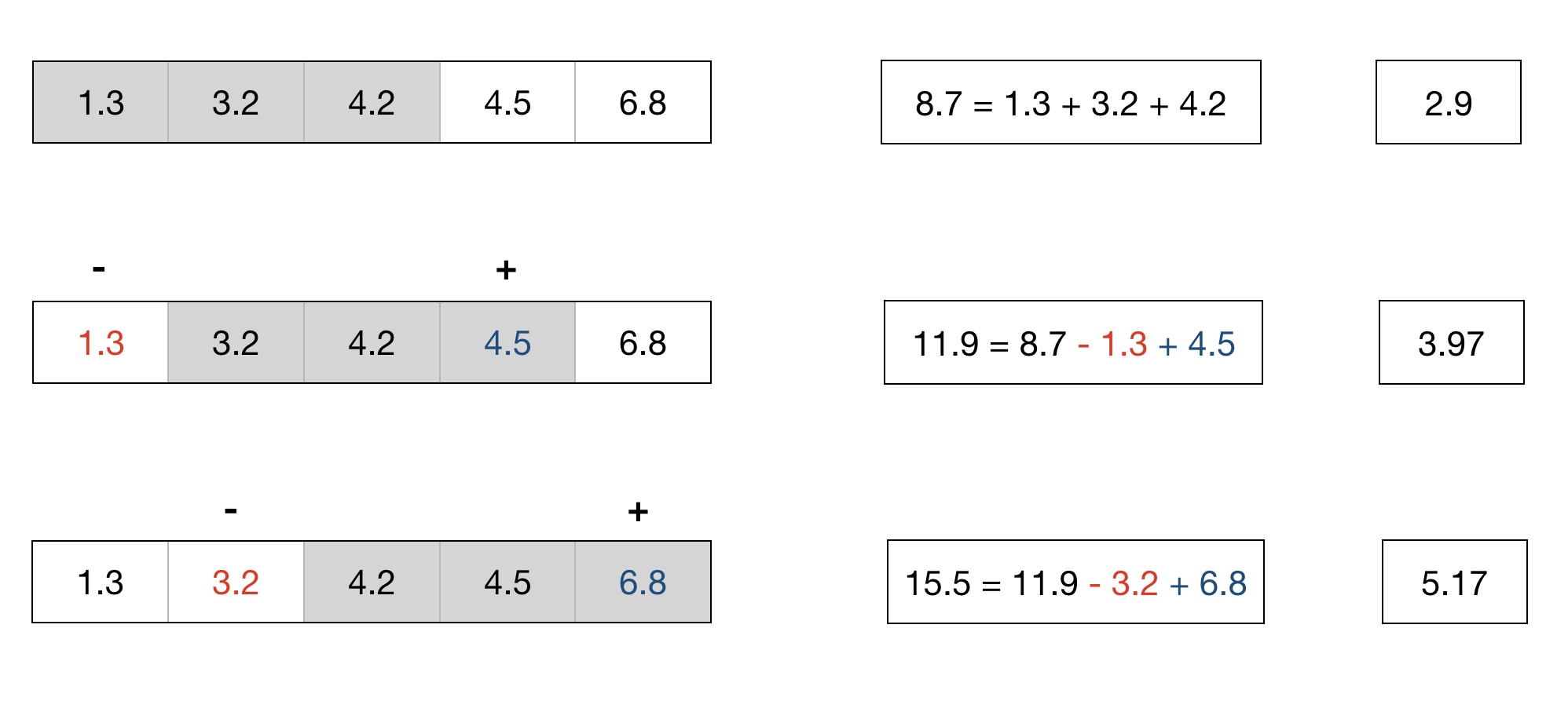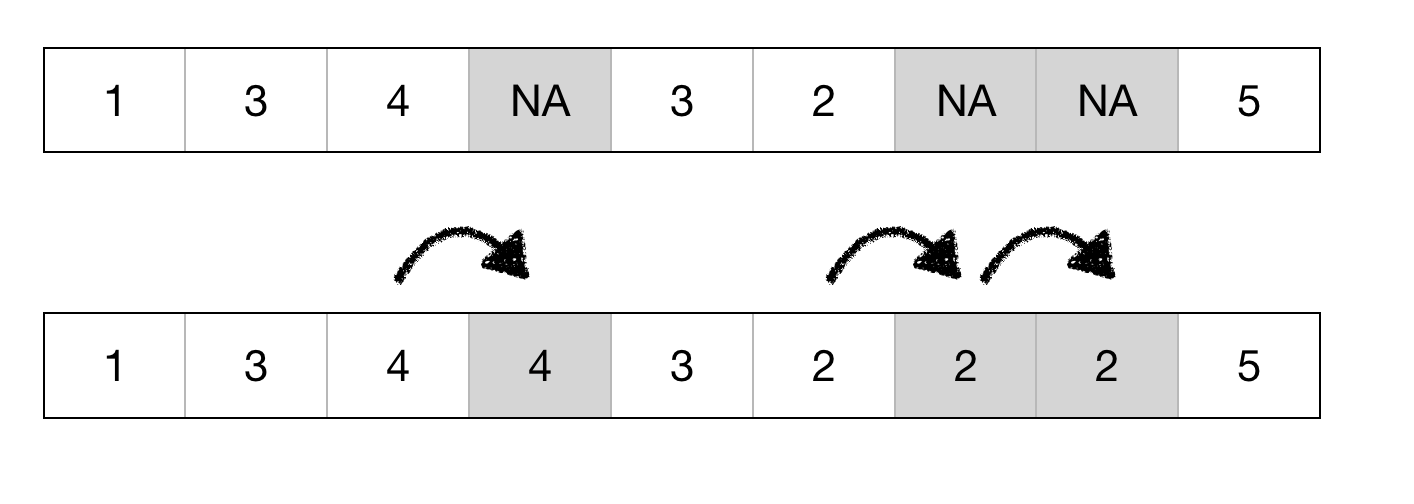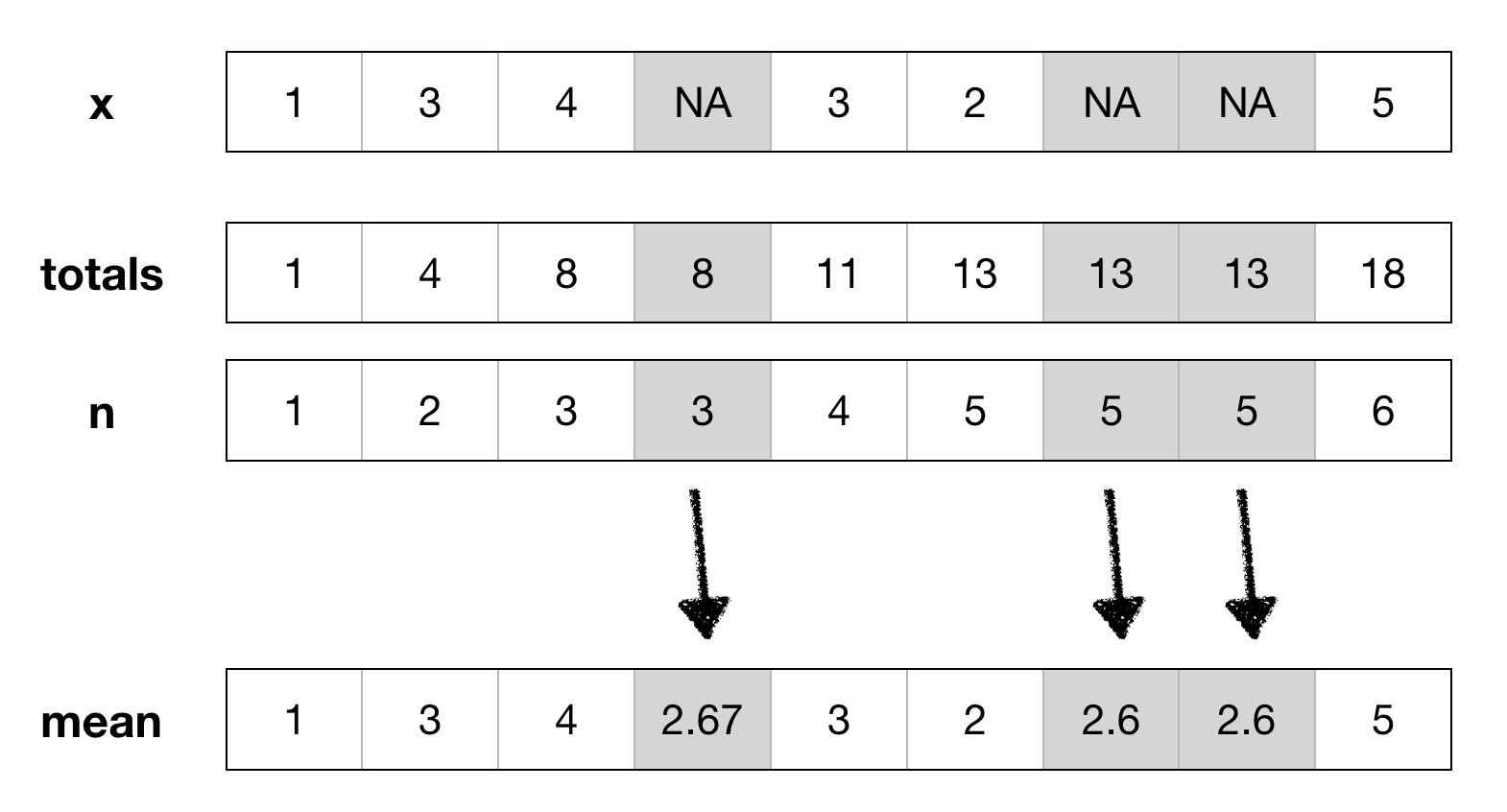Rolling operations
Optimizing R Code with Rcpp

Romain François
Consulting Datactive, ThinkR
Rolling means
rollmean1 <- function(x, window = 3){
n <- length(x)
# create empty vector full of NA
res <- rep(NA, n)
# fill the values
for( i in seq(window, n) ){
idx <- seq(i-window+1,i)
res[i] <- mean(x[idx])
}
res
}
Rolling means

- Make an integer vector to hold indices, extract the relevant part of
x - Call the
meanfunction on that extract
Alternative algorithm

Alternative algorithm
rollmean2 <- function(x, window = 3){
n <- length(x)
res <- rep(NA, n)
# first value
total <- sum(head(x,window))
res[window] <- total / window
# remaining values
for( i in seq(window+1, n) ){
total <- total + x[i] - x[i-window]
res[i] <- total / window
}
res
}
Hackstucious (hack + astucious) vectorization
x <- c(1.3, 3.2, 4.2, 4.5, 6.8)
start <- sum(x[1:3])
head( x, -3 )
tail( x, -3 )
1.3 3.24.5 6.8
c( start, start + cumsum( tail(x, -3) - head( x, -3 ) ) )c( start, start + cumsum( tail(x, -3) - head( x, -3 ) ) ) / 3
8.7 11.9 15.52.900000 3.966667 5.166667
Comparison
library(microbenchmark)
x <- rnorm(1e5)
microbenchmark(
rollmean1(x, 3),
rollmean2(x, 3),
rollmean3(x, 3)
)
Unit: milliseconds
expr min lq mean median ...
rollmean1(x, 3) 833.667884 857.507753 971.250098 893.206776 ...
rollmean2(x, 3) 10.539993 11.034244 12.293105 11.396629 ...
rollmean3(x, 3) 1.429817 1.625453 3.070925 3.067068 ...
Last observation carried forward

Last observation carried forward
na_locf1 <- function(x){
current <- NA
res <- x
for( i in seq_along(x)){
if( is.na(x[i]) ){
# replace with current
res[i] <- current
} else {
# set current
current <- x[i]
}
}
res
}
Mean carried forward

na_meancf1 <- function(x){
# ( cumulative sum of non NA values ) / ( cumulative count of non NA )
means <- cumsum( replace(x, is.na(x), 0) ) / cumsum(!is.na(x))
# replace the missing values by the means
x[is.na(x)] <- means[is.na(x)]
x }
# iterative version
na_meancf2 <- function(x){
total <- 0
n <- 0
for( i in seq_along(x) ){
if( is.na(x[i]) ){
x[i] <- total / n}
else {
total <- x[i] + total
n <- n + 1} }
}
Comparisons
x <- rnorm(1e5)
x[ sample(1e5, 100) ] <- NA
microbenchmark( na_meancf1(x), na_meancf2(x) )
Unit: milliseconds
expr min lq mean median ...
na_meancf1(x) 1.176276 2.785667 3.237009 3.474028 ...
na_meancf2(x) 16.945271 17.430133 19.678276 18.625274 ...
Let's practice!
Optimizing R Code with Rcpp

